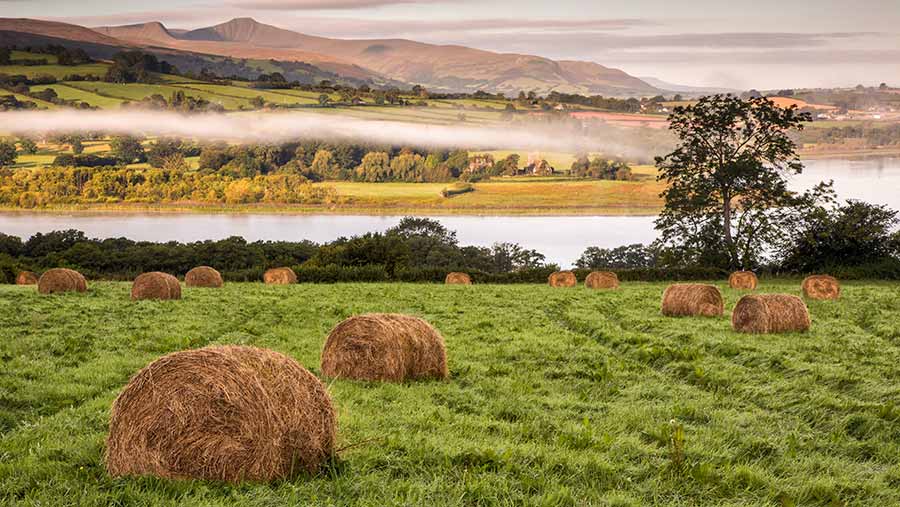Hard Brexit ‘incredibly damaging’ to Welsh agriculture
 © FLPA/Allen Lloyd/Rex/Shutterstock
© FLPA/Allen Lloyd/Rex/Shutterstock Failure to secure the right Brexit trade deal would be “incredibly damaging” to Welsh agriculture, industry leaders have told MPs.
NFU Cymru presented evidence to MPs on Monday (20 March) as part of a Welsh Affairs Committee inquiry examining the effect of Brexit on agriculture in Wales.
The call for evidence was launched at Dolgellau farmers’ mart, Gwynedd.
NFU Cymru president Stephen James and head of policy Dylan Morgan gave evidence to MPs at a subsequent session at Gwynedd council chambers.
See also: Free trade deal ‘critical’ for Welsh red meat
Speaking after giving evidence, Mr James reiterated the importance of agriculture to the Welsh economy and the “integral role” played by farming in Wales.
“Agriculture’s contribution to the economic, environmental, social and cultural well-being of Wales is unrivalled and should not be underestimated,” he said.
Significant challenges
While Brexit presented significant challenges, it also presented opportunities, said Mr James.
It was important to craft and develop an agricultural policy framework that supported productive, progressive and profitable farming – and delivered jobs, growth and investment to Wales.
“Getting the right Brexit trade deal and future agricultural policy are going to be vital components if the industry is to flourish after Brexit – we don’t want to see agriculture used as a bargaining chip.”
Mr James added: “A hard Brexit, which would see us move to World Trade Organisation default tariffs, would be incredibly damaging to Welsh agriculture.”
Agriculture makes a significant contribution to the economies of north and mid-Wales.
Farming accounts for 1 in 25 jobs, with as much as 90% of produce exported to EU markets, including lamb to countries such as France.
Farm leaders fear tariffs imposed after Brexit could devastate the sector.
Key factors
The inquiry is considering key factors influencing the prosperity of farming in Wales once negotiations to leave the EU are completed.
Welsh farming is also heavily reliant on funding from the EU. Direct subsidies through the Common Agricultural Policy alone amount to £274m annually.
Like Scotland, a central issue affecting future agricultural policy for Wales involves the repatriation of powers from Brussels once the UK leaves the EU.
The Welsh government currently has control of agricultural policy but the extent to which Westminster hands on any returned powers to Cardiff remains to be seen.
‘Different from England’
Farmers Union of Wales president Glyn Roberts warned last week that politicians must recognise the difference between agriculture in Wales and agriculture in England.
Mr Roberts said: “Welsh agriculture fundamentally differs in terms of need, product and social importance. Hence why we can’t have an ‘England-centric’ policy once we leave the EU.
“We need the UK government to appreciate the difference and repatriate powers from Brussels to the Welsh government, ideally within a new UK framework.”
Committee chairman David TC Davies said: “The committee has come to Dolgellau to see how crucial agriculture is to Wales and examine the effect of any potential Brexit deal.”
The EU currently played a big role in the sector and MPs wanted to ask farm leaders what the UK government needed to do to ensure it remained a viable industry, he said.
